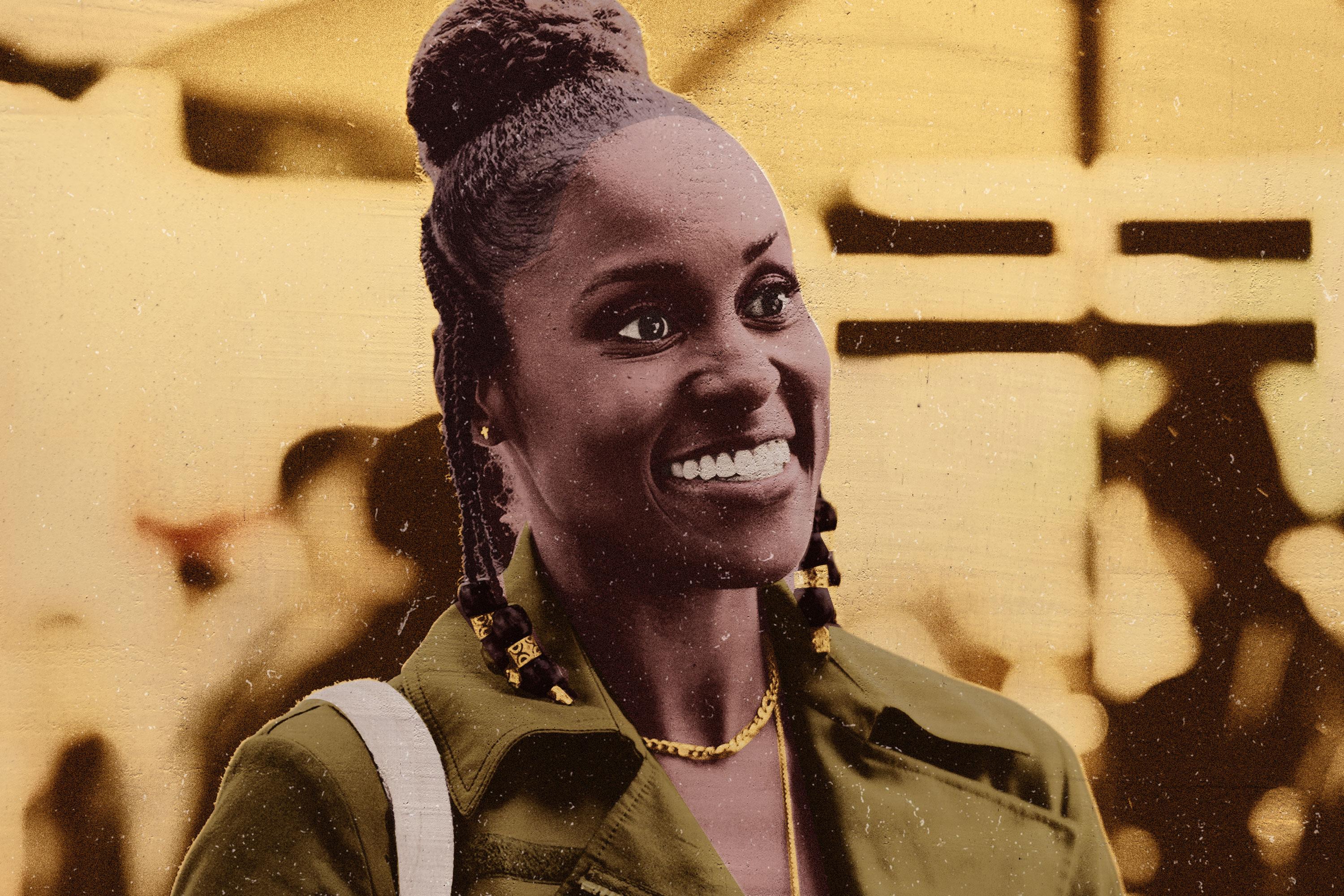

“Is that a deal breaker?”
Lawrence asks that question to Issa just minutes into the Season 4 finale of HBO’s Insecure, a show comprised of relationships routinely at the mercy of deal breakers. They’re in an outdoor market in Los Angeles, happy together, 35 episodes older and wiser than when viewers first met Lawrence and Issa in 2016 when the show originally debuted. Issa is now a budding event planner; Lawrence not only has an offer for a new job in San Francisco, he’s been promised a corner office, an assistant, and a relocation fee. Thus, the deal breaker: Would Lawrence moving cities for work ruin the relationship he and Issa have recently rekindled?
Issa says no. “If we want this to work, it’ll work.” And not just as a long-distance relationship. She’s even open to moving to San Francisco. For a moment, no matter what hashtags you’ve employed throughout the breakups and over the years—#TeamIssa, #TeamLawrence, #TeamDaniel, #TeamNathan—it seems like they have reconciled to once again become the couple they were in the years before the series’ curtains drew.
Before Season 3, when it seemed like the show had axed Lawrence’s story line for good, Issa Rae explained that she wanted the characters to mimic a real-life relationship, not just one made for television. “You never see the exes again,” she said at InsecureFest in 2018. “And it’s okay! You gotta explore life without Lawrence. … We want to stay as true to life as possible.”
Insecure is championed for its authenticity. The show is set in South L.A. but roams around the city intimately; in the finale, the camera pans to a mural of Kobe and Gigi Bryant, then over a blue basketball court in Hyde Park with the late Nipsey Hussle’s face painted on it. The characters are familiar. In 2018, Rae said she wanted the performers to be “unapologetic in our blackness … there’s a telling of the truth that there just hasn’t been in the past.” The end of Season 4 shifts from romantic to tense—Molly and Andrew argue over Molly wielding power in their relationship—to crisis when Tiffany goes missing. Trying to locate their friend reunites Molly and Issa, who had a falling out in the penultimate episode after their initial falling out earlier this season, but Tiffany’s disappearance is more than a plot device. Tiffany is suffering from postpartum depression, though the show doesn’t explicitly say so. Black women are at twice the risk of other women to develop a perinatal mental health illness, but far less likely to receive treatment.
It’s not the first time Insecure edified the real-life risks that are often overlooked for Black mothers. Earlier in the season, Tiffany said that doctors ignored her complaints of feeling faint when she was in the hospital. After her husband, Derek, insisted that she be checked out, they discovered a blood clot. Issa, Molly, and Kelli weren’t surprised by the story; hidden biases lead medical professionals to dismiss their Black patients’ pain at alarming rates.
The search for Tiffany (who is found before the episode’s end staying at a nearby hotel) also leads to a confrontation with two police officers after a bus driver and white passenger accuse Kelli of wrongdoing. (On the bus, the white passenger tells Kelli, “OK, real talk, my inner Black woman looks just like you.” Kelli, who is on the phone, replies, “OK, real talk, my outer Black woman needs you to shut the fuck up.”) Timely as the interaction may seem, those run-ins were just as relevant when the episode was written.
The big soap-operatic twist in Sunday’s finale was less predictable (and hopefully less relatable). Lawrence’s ex-girlfriend, Condola, reveals that she’s pregnant. After Lawrence relays the news to Issa and the accounts are hashed (When did it happen? Before they were back together. Is it his? Yes. Is she keeping it? Yes. Are Lawrence and Condola getting back together? No.), Issa appears more overwhelmed than her character has ever been, through multiple breakups, through sleeping on her ex-boyfriend’s couch, through a draining, thankless job, through being ghosted for months, through ending her closest friendship. “This is too much,” she says. “I thought shit was finally … Fuck.”
The last scene resolves nothing for Issa and Lawrence, or for Molly and Andrew, who had their own reckoning earlier in the episode. Instead, the two women meet at their favorite Ethopian restaurant, Merkato on Fairfax Ave., and reconcile their own relationship. “We wanted to get Molly and Issa back together,” showrunner Prentice Penny tweeted as the episode aired. “They need each other. That’s the love story in the show.” The sentiment isn’t uncommon in shows focused on female friendships, but the divide between Issa and Molly felt deep-rooted and permanent. The friendship technically split open in Season 4 because of a crossed line, but we’ve seen the passive aggressions that led to it all along: One didn’t support the way the other operated in her relationships; the other felt attacked; the former became defensive; rinse, repeat. For as long as viewers have known their bond, they’ve known each other’s shortcomings toward each other as friends. (Who can forget Issa rapping about Molly’s broken pussy to a club full of people?) Their relationship might be too toxic for some to have any interest in it’s mending. The unhealthy way Issa and Molly communicate with each other doesn’t make their reconciliation feel like a win, especially with Lawrence’s news coming moments earlier. But the show wanted to find relief in a relationship that can endure, no matter the damage. One that is exempt from deal breakers.